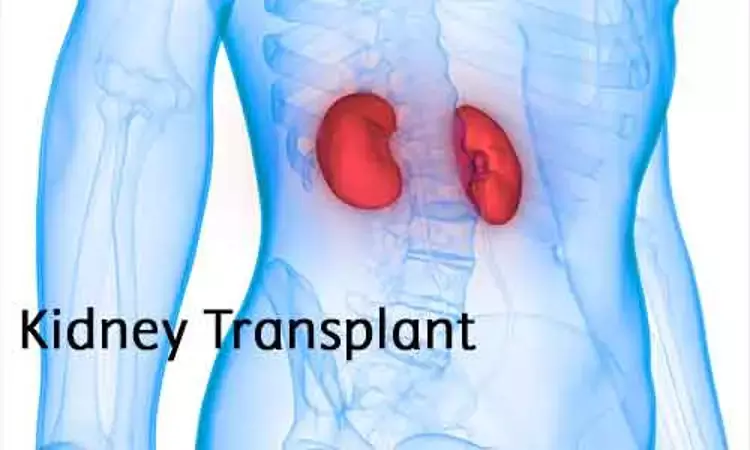- Home
- Medical news & Guidelines
- Anesthesiology
- Cardiology and CTVS
- Critical Care
- Dentistry
- Dermatology
- Diabetes and Endocrinology
- ENT
- Gastroenterology
- Medicine
- Nephrology
- Neurology
- Obstretics-Gynaecology
- Oncology
- Ophthalmology
- Orthopaedics
- Pediatrics-Neonatology
- Psychiatry
- Pulmonology
- Radiology
- Surgery
- Urology
- Laboratory Medicine
- Diet
- Nursing
- Paramedical
- Physiotherapy
- Health news
- Fact Check
- Bone Health Fact Check
- Brain Health Fact Check
- Cancer Related Fact Check
- Child Care Fact Check
- Dental and oral health fact check
- Diabetes and metabolic health fact check
- Diet and Nutrition Fact Check
- Eye and ENT Care Fact Check
- Fitness fact check
- Gut health fact check
- Heart health fact check
- Kidney health fact check
- Medical education fact check
- Men's health fact check
- Respiratory fact check
- Skin and hair care fact check
- Vaccine and Immunization fact check
- Women's health fact check
- AYUSH
- State News
- Andaman and Nicobar Islands
- Andhra Pradesh
- Arunachal Pradesh
- Assam
- Bihar
- Chandigarh
- Chattisgarh
- Dadra and Nagar Haveli
- Daman and Diu
- Delhi
- Goa
- Gujarat
- Haryana
- Himachal Pradesh
- Jammu & Kashmir
- Jharkhand
- Karnataka
- Kerala
- Ladakh
- Lakshadweep
- Madhya Pradesh
- Maharashtra
- Manipur
- Meghalaya
- Mizoram
- Nagaland
- Odisha
- Puducherry
- Punjab
- Rajasthan
- Sikkim
- Tamil Nadu
- Telangana
- Tripura
- Uttar Pradesh
- Uttrakhand
- West Bengal
- Medical Education
- Industry
Early blood transfusion in kidney transplant not tied to graft rejection: Study

Pregnancy, blood product transfusion, and previous organ transplantation have been associated with the development of HLA sensitization. Kidney transplant candidates are at particularly increased risk for sensitization from blood transfusion because of the high prevalence of anemia associated with kidney disease.8 Exposure to HLA antigens on the surface of red blood cells and leukocytes has been associated with not only the development of new anti-HLA antibodies but also an increase in the breadth of the preexisting antibody profile, measured by calculated panel reactive antibody. The use of leukocyte-reduced blood products does not seem to eliminate such a risk. International guidelines for the management of anemia in patients with chronic kidney disease have been established to standardize anemia treatment and promote a reduction in blood transfusion. These guidelines explicitly call for avoiding the administration of blood products in patients eligible for organ transplantation.
In a recent development , researchers have reported that early transfusion of blood products in kidney transplant recipients receiving induction with lymphocyte depletion was not associated with an increased hazard of experiencing acute rejection, death from any cause, or graft loss. The study findings have been put forth in Kidney International Reports.
Blood transfusion is a risk factor for allosensitization. Nevertheless, blood transfusion post transplant remains a common practice. The team evaluated the effect of post transplant blood transfusion on graft outcomes.
As for the study design, researchers included nonsensitized, first-time, kidney-alone recipients transplanted between 1 July 2015 and 31 December 2017. Patients were grouped based on receiving blood transfusion in the first 30 days posttransplant.
The primary end point was a composite outcome of biopsy-proven acute rejection, death of any cause, or graft failure in the first year posttransplant. Secondary outcomes included the individual components of the primary outcome and the cumulative incidence of de novo donor-specific antibodies (DSAs).
Data analysis revealed the following facts.
- Two hundred seventy-three patients were included.
- One hundred twenty-seven (47%) received blood transfusion. Patients in the transfusion group were more likely to be older, have had a deceased donor, and have received induction with basiliximab.
- There was no difference between groups in the composite primary outcome (adjusted hazard ratio = [HR] 1.34; 95% confidence interval [CI], 0.83–2.17; P = 0.23).
- The cumulative incidence of de novo DSAs during the first year posttransplant was similar between groups (12.8% transfusion vs. 10.9% no transfusion, P = 0.48).
For the full article follow the link: Daloul R, Braga JR, Diez A, Logan A, Pesavento T. Early post-transplant blood transfusion and risk for worse graft outcomes. Published January 21, 2021. Kidney Int Rep. doi:10.1016/j.ekir.2020.12.03
Primary source: Kidney International Reports
Dr Satabdi Saha (BDS, MDS) is a practicing pediatric dentist with a keen interest in new medical researches and updates. She has completed her BDS from North Bengal Dental College ,Darjeeling. Then she went on to secure an ALL INDIA NEET PG rank and completed her MDS from the first dental college in the country – Dr R. Ahmed Dental College and Hospital. She is currently attached to The Marwari Relief Society Hospital as a consultant along with private practice of 2 years. She has published scientific papers in national and international journals. Her strong passion of sharing knowledge with the medical fraternity has motivated her to be a part of Medical Dialogues.
Dr Kamal Kant Kohli-MBBS, DTCD- a chest specialist with more than 30 years of practice and a flair for writing clinical articles, Dr Kamal Kant Kohli joined Medical Dialogues as a Chief Editor of Medical News. Besides writing articles, as an editor, he proofreads and verifies all the medical content published on Medical Dialogues including those coming from journals, studies,medical conferences,guidelines etc. Email: drkohli@medicaldialogues.in. Contact no. 011-43720751


